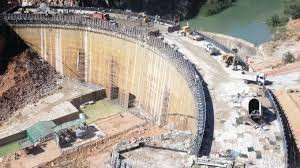
AGRICULTURAL mechanisation concern, Agricon Equipment, has experienced an uptick in sales despite ongoing challenges related to access to finance, liquidity constraints and unfavourable tax policies, it has emerged.
Operating in Zimbabwe since the early 2000s, Agricon distributes leading international brands such as Case Agriculture, Case Construction, Kuhn and Aardvark, providing mechanisation solutions across key agricultural sectors including tobacco, maize, livestock, sugarcane, and high-value tree crops like macadamia and peanuts.
It entered the market through construction equipment and has, in recent years, emerged as a key player in the agricultural mechanisation space, an area gaining momentum as Zimbabwe pushes for improved productivity and climate-resilient farming practices.
Agri-Con has been affected by the reintroduction of value-added tax and duty on some imported agricultural equipment, changes that many industry players argue are undermining affordability and slowing progress on mechanisation.
“If you had asked me at the start of the year, I would’ve given you a far more cautious outlook,” Agricon business unit manager Francois de Fleuriot de La Coliniere told NewsDay Business.
“But activity has picked up. Sales have improved, and we believe 2025 could be a very strong year for us.”
This comes as the current season is expected to experience La Niña weather conditions.
“We understand the need to support local industry, but there is machinery we simply cannot manufacture in Zimbabwe. The added tax burden affects our pricing and, ultimately, the farmer,” Coliniere said.
While several banks offer structured finance for agriculture, the real constraint lies in the liquidity constraints.
“Access isn’t the issue; it’s availability. We’ve seen transactions signed off, but the money doesn’t move. This delays delivery and disrupts planning for us and the farmer,” Coliniere explained.
To mitigate this, Agricon is working on an in-house financing model in partnership with international suppliers and is also in talks to secure external credit lines from Europe.
With high interest rates and tighter cash flows, more farmers are opting for secondhand equipment, Coliniere said.
“If farmers can’t afford new equipment, they’ll go for quality second-hand alternatives,” he said.
“Fortunately, our brands retain high resale value because they’ve been well maintained through our after-sales systems.”
The company also acknowledged rising competition from low-cost imports, particularly from China, but maintained that quality and after-sales reliability continue to give it an edge.
“You’re not buying the same machine for less — you’re buying a completely different machine. Yes, you may get two for the price of one, but that often means two new problems,” Coliniere said.
He added that many of the cheaper models lacked local support, spare parts and trained technicians, making them a risky investment for serious commercial farmers.
During an inaugural European Union and Zimbabwe business forum last month, Lands, Agriculture, Fisheries, Water and Rural Development deputy minister Vangelis Haritatos revealed that the country had a mechanisation shortfall.
He said the country has 15 000 tractors instead of the required 40 000. The country has 150 functional combine harvesters, below the required 600.
Mechanisation levels remain low compared to regional counterparts, owing to limited access to capital, inconsistent policy support and constrained access to modern farming technologies.










